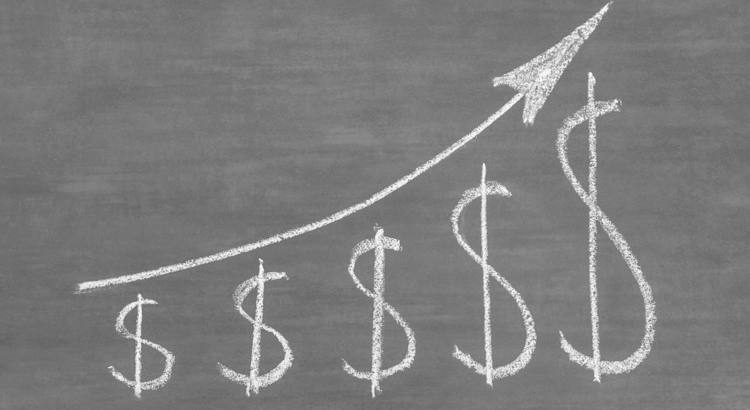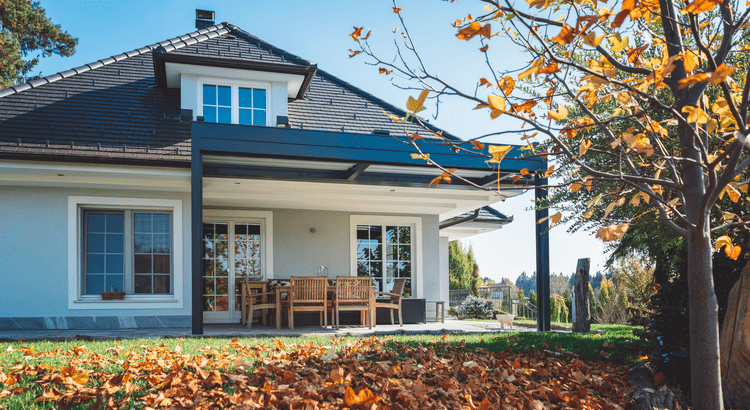
Gen Z's Ultimate Guide to Affordable Homeownership: Proven Strategies for Today's Market
Affordable Homeownership Strategies for Gen Z Owning a home has always been a big part of the American Dream. It symbolizes stability, independence, and having a place to call your own honestly. But for Gen Z, the "Zoomers" born between 1997 and 2012, making that dream a reality can feel like quite the challenge today with higher mortgage rates and rising home prices. But achieving that goal of owning your first home can still be attainable, even today, with some strategic planning and resourcefulness. Explore Down Payment Assistance Options With prices rising around you, saving up for a home can be hard. If you've been struggling to stash away enough cash for that down payment, it’s worth looking into the various down payment assistance programs available. These programs can really help you save big on the upfront costs of buying a home. There are a lot more options out there than you may realize. According to Down Payment Resource, there are over 2,000 programs designed to help hopeful homebuyers with down payments and closing costs. If you qualify for one of these programs, you may not need to save as much money for your down payment. A local real estate agent can help you explore these programs in your area, making it much easier to turn your homeownership dream into a reality. Consider Living with Relatives To Save If you still need a bit more time to save, even with the down payment assistance programs out there, there are ways you can make that happen. Many savvy Zoomers have made a strategic choice to live with relatives so they can get to their savings goals even faster. According to the National Association of Realtors (NAR), around 30% of Gen Z homebuyers transition directly from their relative’s home to a home of their own. You can substantially reduce your monthly expenses by sharing living costs, such as mortgage payments, utility bills, and even grocery expenses. This frees up more of your income to tackle any outstanding debt, boost your credit score, and quickly reach your down payment target. And all of this can bring homeownership one step closer to becoming a reality. Clare Trapasso, Executive News Editor at Realtor.com, explains: “Faced with ongoing housing affordability issues . . . we're seeing parents and children becoming roommates again in later years as the 'kids' save up to purchase their own place . . ." The Road to Homeownership When you're on the path to becoming a homeowner, getting some help along the way is a good idea. And one of your best resources on this journey as a young homebuyer is a trusted real estate agent. They'll steer you through buying a home and help you find one you can afford. Bottom Line The path to homeownership may not be straightforward for Gen Z, but it's still within reach. With the right strategies, you can make your dream of owning a home a reality.

Unlocking Personal Wealth: Why Investing in a Home is Investing in Yourself
Invest in Yourself by Owning a Home Does it make sense to buy a home right now? While today’s mortgage rates might seem intimidating, here are two compelling reasons why it may still be a good time to become a homeowner. Home Values Appreciate Over Time There’s been a lot of confusion around what’s happened with home prices over the past two years. While they did dip ever so slightly in late 2022, this year, they’ve been appreciating at a more normal pace, which is good news for the housing market. While looking at price movement over just a year or two can make you worry prices are usually this unpredictable, history shows in the long run, home values rise (see graph below): Using data from the Federal Reserve for the past 60 years, you can see that home prices have steadily climbed. Sure, there was an exception around the housing crash of 2008 that caused prices to break the usual trend for a time, but overall, home values have been consistently on the rise. Increasing home values is one reason buying may make more sense than renting. As prices rise and as you pay down your mortgage, you build equity. Over time, that growing equity gives your net worth a boost. Rent Keeps Going Up Through the Years Another reason you should consider buying a home instead of renting is the never-ending rent hike. If you've ever felt the pinch of rent increasing year after year, you're not alone. That’s because rents have climbed steadily over the past six decades (see graph below): Buying a home can lock in your monthly housing costs and bid farewell to those pesky rent hikes. That stability is a game-changer. Ultimately, it all boils down to this: your housing payments are an investment, and you have a choice to make. Do you want to invest in yourself or your landlord? By becoming a homeowner, you're investing in your future. When you rent, that’s money you never get back. Homeownership can be a path to financial security when you factor in home values consistently rising, plus the opportunity to get relief from never-ending rent hikes. As Dr. Jessica Lautz, Deputy Chief Economist and VP of Research at the National Association of Realtors (NAR), states: “If a homebuyer is financially stable, able to manage monthly mortgage costs and can handle the associated household maintenance expenses, then it makes sense to purchase a home.” Bottom Line When it comes down to it, buying a home offers more benefits than renting, even when mortgage rates are high. Let's discuss your options if you want to avoid increasing rents and take advantage of long-term home price appreciation.

Maximizing Returns: Why Selling Your House in a Low Inventory Market Can Be a Goldmine
The Perks of Selling Your House When Inventory Is Low When selling your house, you’re probably trying to juggle the current market conditions and your own needs as you plan your move. One thing that may work in your favor is how few homes are currently for sale. Here’s what you need to know about the current inventory situation and its meaning. The Supply of Homes for Sale Is Far Below the Norm When you’re selling something, it helps if what you’re selling is in demand but is also in low supply. Why? That makes it even more desirable since there’s not enough. That’s exactly what’s happening in the housing market today. More buyers are looking to buy than there are homes for sale. Here’s the latest information on active listings or homes available for sale to tell the story of just how low inventory is. The graph below uses data from Realtor.com to show how many active listings there were in September of this year compared to what’s more typical in the market. As you can see in the graph, if you look at the last normal years for the market (shown in the blue bars) versus the latest numbers for this year (shown in the red bar), it’s clear inventory is still far lower than the norm. What That Means for You Buyers have fewer choices now than they did in more typical years. And that’s why you could still see some great perks if you sell today. Because there aren’t enough homes, homes priced right are still selling fast, and the average seller is getting multiple offers from eager buyers. Based on the latest data from the Confidence Index from the National Association of Realtors (NAR): 69% of homes sold in less than a month. 2.6 offers: the average number of offers on recently sold homes. An article from Realtor.com also explains how the limited number of houses for sale benefits you if you’re selling: “. . . homes spent two weeks less on the market this past month than they did in the average September from 2017 to 2019 . . . as still-limited supply spurs homebuyers to act quickly . . .” Bottom Line Because the supply of homes for sale is so low, buyers desperately want more options – and your house may be just what they’re looking for. Let’s connect to get your house listed at the right price for today’s market. You could still see it sell quickly and potentially get multiple offers.

Understanding the Surge: Key Factors Driving Home Price Increases
Why Home Prices Keep Going Up If you've ever dreamed of buying your place or selling your current house to upgrade, you're no stranger to the rollercoaster of emotions that changing home prices can stir up. It's a tale of financial goals, doubts, and a dash of anxiety that many have been through. But if you put off moving because you’re worried home prices might drop, make no mistake, they’re not going down. In fact, it's just the opposite. National data from several sources says they’ve been going up consistently this year (see graph below): Here’s what this graph shows. Home prices rose significantly in the first half of 2022 (the green bars on the left side of the graphs above). Those increases were dramatic and unsustainable. So, in the year's second half, prices went through a correction and started dipping a bit (shown in red). But those slight declines were shallow and short-lived. Still, the media focused on those drops in their headlines, which created a lot of fear and uncertainty among consumers. But here’s what hasn’t been covered fully. So far in 2023, prices are increasing again, but at a more normal pace (the green bars on the right side of the graphs above). After price gains that were too high and the corrections that followed in 2022, all three reports show that more normal price appreciation this year is good news for the housing market. Orphe Divounguy, Senior Economist at Zillow, explains changing home prices over the past 12 months this way: “The U.S. housing market has surged over the past year after a temporary hiccup from July 2022-January 2023. . . . That downturn has proven to be short lived as housing has rebounded impressively so far in 2023. . .” Looking ahead, home price appreciation typically starts to ease up this time of year. As that happens, there’s some risk the media will confuse slowing price growth (deceleration of appreciation) with home prices falling (depreciation). Don’t be fooled. Slower price growth is still growth. Why Are Home Prices Increasing Now? Home prices are going back up because there still aren't enough homes for sale for all the people who want to buy them. Even though higher mortgage rates cause buyer demand to moderate, they also cause the supply of available homes to decrease. That’s because of the mortgage rate lock-in effect. When rates rise, some homeowners are reluctant to sell and lose their current low mortgage rate to take on a higher one for their next home. So, with higher mortgage rates impacting both buyers and sellers, the supply and demand equation of the housing market has been affected. But since more people still want to purchase homes than there are homes available to buy, prices continue to rise. As Freddie Mac states: “While rising interest rates have reduced affordability—and therefore demand—they have also reduced supply through the mortgage rate lock-in effect. Overall, it appears the reduction in supply has outweighed the decrease in demand, thus house prices have started to increase . . .” Here’s How This Impacts You Buyers: If you've been waiting to buy a home because you were afraid its value might drop, knowing that home prices have returned should make you feel better. Buying a home allows you to own something more valuable over time. Sellers: If you've been holding off on selling your house because you were worried about how changing home prices would impact its value, it could be smart to work with a real estate agent and put your house on the market. You don't have to wait any longer because the most recent data indicates home prices have turned in your favor. Bottom Line If you put off moving because you worried that home prices might go down, data shows they’re increasing nationwide. Let’s connect so you can understand how home prices are changing in our local area.
Categories
Recent Posts










